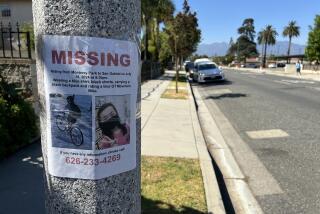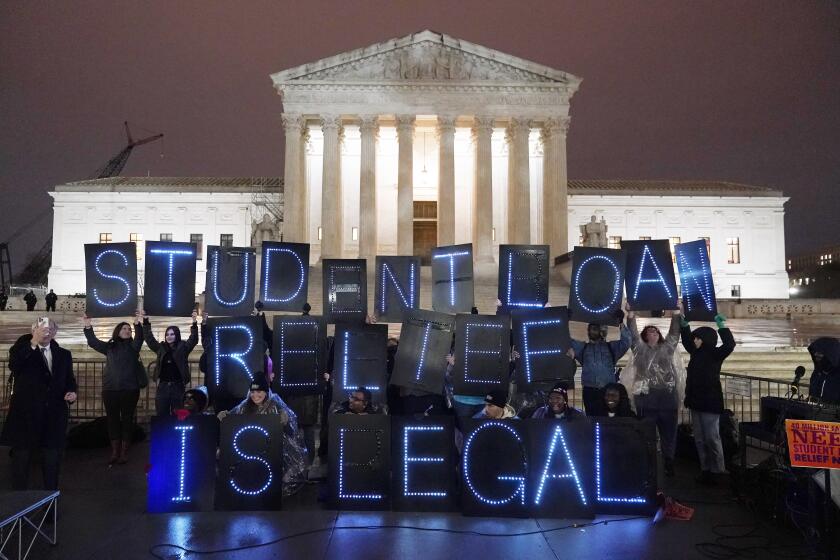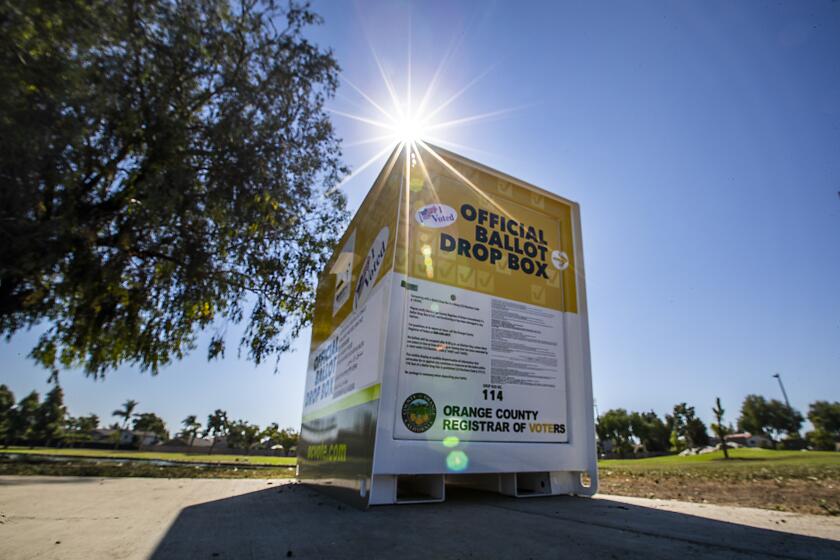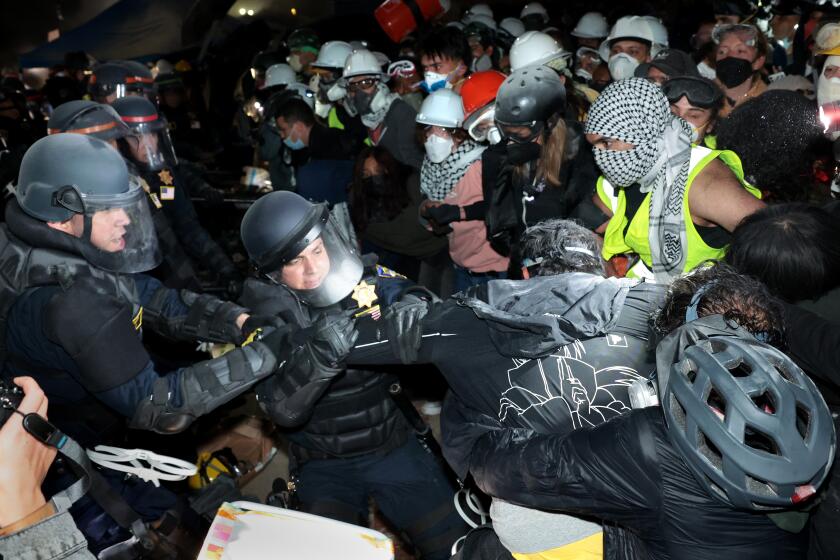The Fight Against Crime: Notes From The Front : Center Offers Troubled Kids Alternatives
When Juan, a 17-year-old high school student and ward of the Los Angeles County Juvenile Court, was ordered to report to the county’s recently opened Osborne Community Education Center, he wasn’t given much to go on by way of directions.
“They told me it was next to a big pile of tires,” he said of the tiny facility nestled beside an auto parts junkyard in an otherwise desolate strip of Pacoima.
“When I first saw it, I thought: ‘You gotta be kidding. This is a school?’ ”
One of 35 sites in the county Probation Department’s growing network of alternative high schools for troubled youths, the Osborne Center, a two--room building that holds a maximum of 34 students, has existed in virtual obscurity for a little more than a year now.
And that’s the way some students like it.
“This is a good place to learn,” said Juan, who found himself expelled from a number of Valley high schools for fighting before winding up in Juvenile Hall earlier this year. “The teachers pay a lot of attention to you and there’s no problems in between classes coming from people you don’t know.
“It’s just you and school here,” he continued. “It’s easy to concentrate.”
Community education centers are the last stage of the county Probation Department’s attempts to channel teen-agers with criminal backgrounds into law-abiding society.
Run by the county Department of Education, the schools teach pupils ranging in age from 13 to 17. Their achievement skills cover the spectrum.
“We have students who can barely read or write and others who are ready for college,” said Laurie Twineham, spokeswoman for the Department of Education.
Unlike traditional high schools, where peer pressure, overcrowded classrooms and gang tension often pull troubled teens from their schoolwork, Twineham said community education centers keep students focused on class with a mixture of Juvenile Hall-like discipline and hands-on teaching.
“We don’t tolerate trouble here,” added Osborne Principal Maxine Shepherd. “These students know that if they mess up too badly, they stand the chance of getting sent back to Juvenile Hall.
“That means they have to go through the whole juvenile court system all over again,” Shepherd said. “And it could be months before they get a chance to enroll in our school again.”
If they demonstrate a willingness to take school seriously, Shepherd continued, students may qualify for transfers into regular schools--although they would still be on probation.
“Our teachers really work hard with the students and they care,” Shepherd said. “They give them a lot of the attention the students don’t always get at home or in regular schools.
“This helps them succeed, if they want to, and allows them to lead normal lives again,” she said.
Lynette is one student close to achieving that goal. In February, the 17-year-old Pacoima girl is scheduled to enroll in a regular high school in time to start the spring semester and graduate.
“This school helped me out a lot,” she said. “They keep you in check and make it easier for you to focus. When you’re here, you don’t have your friends tempting you to cut class or distracting you from your work.
“I can’t wait to walk down that aisle with a diploma in my hand,” Lynette said.
“I want to have a career. I’m tired of running from life.”
Pausing, she added: “I almost don’t want to leave this school. I’m afraid I might mess up again before I graduate.”
More to Read
Sign up for Essential California
The most important California stories and recommendations in your inbox every morning.
You may occasionally receive promotional content from the Los Angeles Times.






